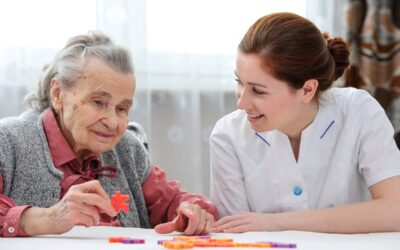The importance of prenatal care Prenatal care is the medical process and support that pregnant women receive to monitor and promote the health of both the mother and the developing foetus. It starts from the first weeks of pregnancy and includes...
News
Humanising medicine in practice: World Physiotherapy Day and care with a heart
What is physiotherapy? Physiotherapy is the branch of medicine concerned with the diagnosis, treatment and prevention of movement disorders and body functions. It is used to restore, improve and maintain maximum physical fitness in patients, regardless of their...
Technological solutions in the humanisation of medicine
Remote health Telemedicine enables patients to contact doctors without having to be physically present in a medical facility. With video calls, patients can have consultations in the comfort of their own home. Telemedicine increases the availability of care...
The role of social workers in humanising health care
Social workers play a key role in the humanisation of medical care, providing support to patients and their families at difficult times. Their tasks cover a wide range of activities that focus on improving patients' quality of life and integrating...
Physical contact as a foundation for the humanisation of medicine
Physical contact A look at the importance of physical touch in the doctor-patient relationship opens up a number of aspects that are relevant to both patients and healthcare staff. Physical contact in the doctor-patient relationship is crucial for building trust and...
Humanising medicine in the care of patients with dementia
Dementia Dementia is a neurodegenerative disease that leads to a gradual loss of cognitive functions such as memory, thinking, orientation, understanding, calculation, learning ability and language. Although dementia can have various causes, the most common is...
Managing patient stress through the humanisation of medicine
Stress Stress is the body's natural response to a variety of challenges in life, which can cause feelings of tension, anxiety or fear. It is an adaptive response that can have both physical and emotional effects. Stress can have a variety of sources,...
Narrative medicine How it supports the humanisation of healthcare
Narrative medicine Narrative medicine is an advanced therapeutic approach that places great emphasis on the importance of patients' personal narratives in the context of healthcare. As part of this approach, patients are encouraged to share their stories...
Humanising medicine Key to effective patient rehabilitation
Rehabilitation Various situations can occur in anyone's life that lead to the need for rehabilitation. Illnesses, injuries or advanced surgery can significantly affect an individual's ability to function physically, emotionally and socially....
Effective methods to reduce patients' anxiety before hospitalisation
Hospitalization, although often necessary for a patient's health, can cause a great deal of anxiety and fear. For many, it is associated with uncertainty, fear of medical procedures and separation from loved ones. Effective methods of reducing this anxiety are key, not only...
How to involve patients in the humanisation of medicine?
A key element in the humanisation of medicine is a deep understanding and consideration of the individual needs and expectations of each patient. This requires medical staff, especially doctors and nurses, to be open, empathetic and able to listen. Each...
Impact of the humanisation of medicine on the work of emergency medical personnel
Paramedics play a key role in the healthcare system, often being the first to respond to medical emergencies. The job requires not only extensive medical knowledge and technical skills, but also exceptional resilience....
Humanisation of medicine and research ethics
Research ethics in medicine is a set of principles and guidelines designed to ensure that human research is conducted in a responsible manner that respects the dignity, rights and well-being of participants. It is the foundation upon which the humanisation of medicine is based,...
Impact of the humanisation of medicine on patients' quality of life
Every patient is unique, both physically and mentally. Each of us has our own life stories, personal experiences and diverse health needs. In the healthcare system, we encounter patients with a range of conditions, from chronic...
The impact of health psychology on the humanisation of medicine
Health psychology is a branch of psychology that focuses on the study and understanding of the impact of psychological factors on the health and health behaviour of individuals and societies. It is an integral part of today's health care system, and its role...














